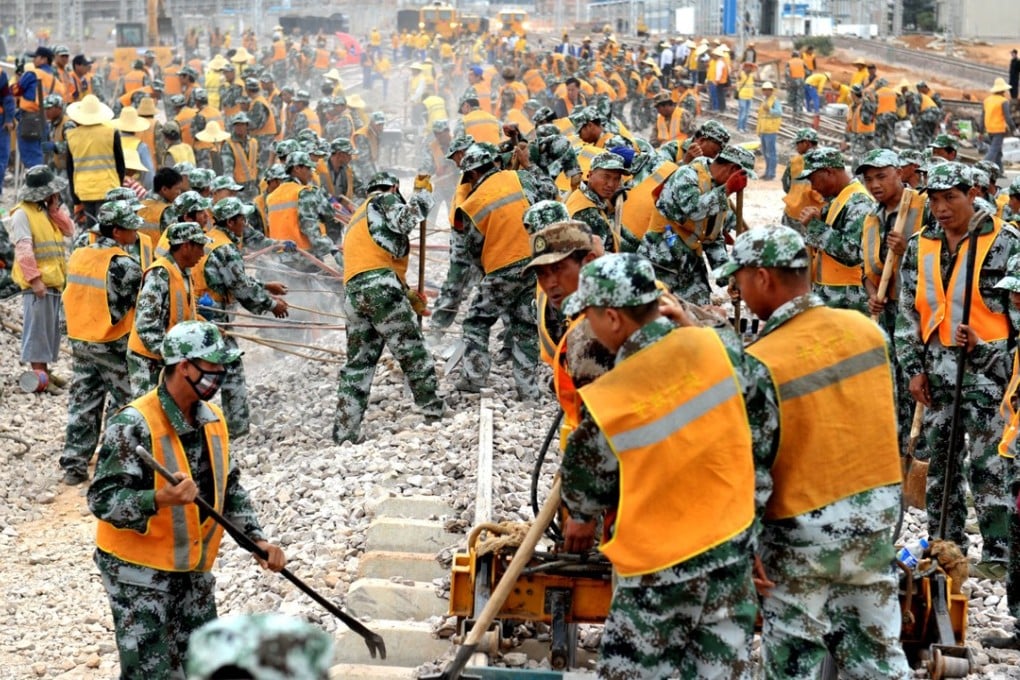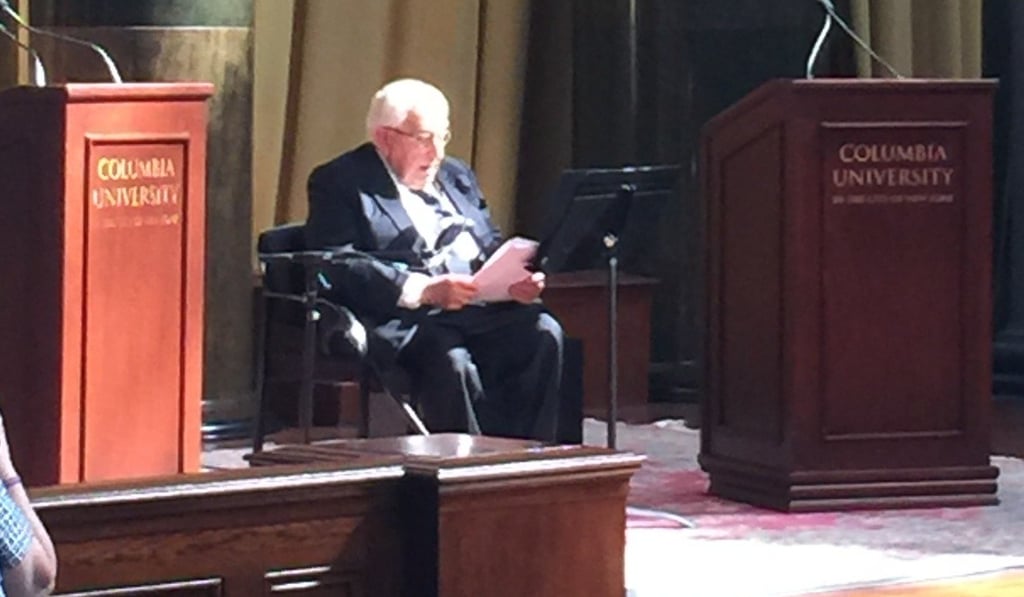Kissinger urges greater cooperation with China as ‘the world’s centre of gravity’ shifts
US elder statesman tells a Columbia University conference the only alternative to positive relations between Washington and Beijing is global destruction

US elder statesman Henry Kissinger urged greater cooperation with Beijing on its Eurasian infrastructure investment plan, arguing that Washington needs to acknowledge that “the world’s centre of gravity” is shifting.
Speaking at a conference that featured China’s vice-premier Liu Yandong as a keynote speaker, Kissinger said the only alternative to positive relations between Washington and Beijing is global destruction. Liu, in turn, said China’s economy will open more after the government’s key political meeting in Beijing next month.
“China’s Belt and Road Initiative, in seeking to connect China to Central Asia and eventually to Europe will have the practical significance of shifting the world’s centre of gravity from the Atlantic to the Pacific and will involve the cultures of Eurasia, each of whom will have to decide what relationship to this region they will see, and so will the United States,” Kissinger said.

“It is said by many scholars that never before has a power grown in one region as China is doing and that its interaction will lead to tensions and maybe even war. We do not have this choice. That would be a road to the disaster and would do to the world what World War II did to Europe.”